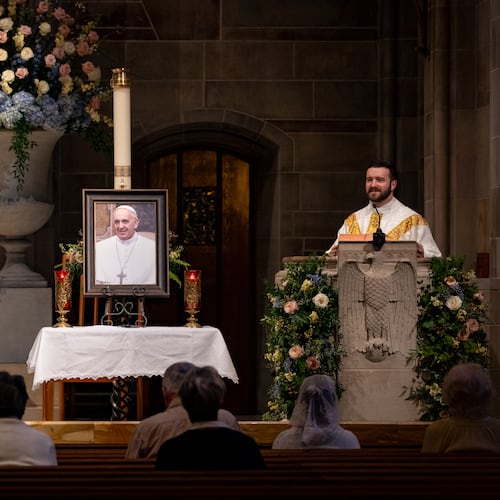A woman in Georgia has been diagnosed with monkeypox, the first woman in the state to be diagnosed with the infectious disease, the Georgia Department of Public Health told The Atlanta Journal-Constitution Tuesday.
The woman had reported contact with a man who was diagnosed with monkeypox, according to DPH. As of Monday afternoon, DPH had confirmed 268 monkeypox cases in the state, all among men, and with the vast majority living in metro Atlanta.
Health officials said the Georgia woman is not the first woman in the U.S. with monkeypox, but the exact number of cases among women was not readily available.
While most cases have been confirmed in men who have sex with men, anyone can be affected by the virus, and cases are expected to continue to climb as the outbreak grows and vaccines continue to be in extremely limited supply.
On Friday, U.S. health officials reported for the first time monkeypox cases in children — one is a toddler in California and the other an infant who is not a U.S. resident but was tested while in Washington, D.C., according to the CDC.
The children were described as being in good health and receiving treatment. How they caught the disease is being investigated, but officials think it was through household transmission.
According to the Centers for Disease Control and Prevention, Georgia has the fifth highest number of monkeypox cases in the country. Georgia’s first-ever case was announced in early June. While several of the cases here were associated with international travel, more recent cases have had no travel history, according to DPH.
The confirmed number of cases is rising quickly here and around the world. The World Health Organization on Saturday declared the monkeypox outbreak a public health emergency. Afterward, the Biden administration said it is weighing whether to declare the nation’s monkeypox outbreak a public health emergency and also plans to name a White House coordinator to oversee the response as officials attempt to keep the virus from becoming entrenched in the United States.
The total number of confirmed cases for the U.S. as of Tuesday afternoon was 3,487 cases, according to the CDC. The U.S. and global case counts include laboratory-confirmed monkeypox cases and infections attributed to an orthopoxvirus, the genus of viruses that includes monkeypox.
As the number of cases of monkeypox continues to climb in Georgia, vaccines against the infectious disease has started to be more widely administered at local health departments this week, but demand has far outstripped supply, with appointments for the vaccine filling up in some cases in a matter of minutes.
Georgia has received approximately 6,000 doses of vaccine – enough for 3,000 people to receive the two-dose series. A total of 13,876 doses have been allocated for the state by the federal government, with several thousand more doses expected to arrive during the coming days.
Allocations of the monkeypox vaccine from the federal government will increase as production of the vaccine ramps up.
The monkeypox vaccine can help prevent illness, and also reduce the severity of the disease for those already infected.
The CDC recommends vaccination for people who have been in close contact with someone with the virus or if they suspect they may have been exposed to the virus, such as having multiple sex partners in an area with known monkeypox cases.
Although it’s possible for anyone to contract monkeypox through close contact with someone who is infected, WHO Director-General Tedros Adhanom Ghebreyesus said Saturday, this outbreak appears to be concentrated in men who have sex with men, and especially those with multiple partners.
Men who have sex with men should be prioritized to be among the first group to receive the monkeypox vaccine, Dr. Anthony Fauci said Monday.
Infections with the type of monkeypox virus identified in this outbreak—the West African type—are rarely fatal, according to the CDC. More than 99% of people who get this form of monkeypox are likely to survive. However, people with weakened immune systems, children under 8, people with a history of eczema, and women who are pregnant or breastfeeding may be more likely to get seriously ill or die, according to the CDC.
About the Author
The Latest
Featured

